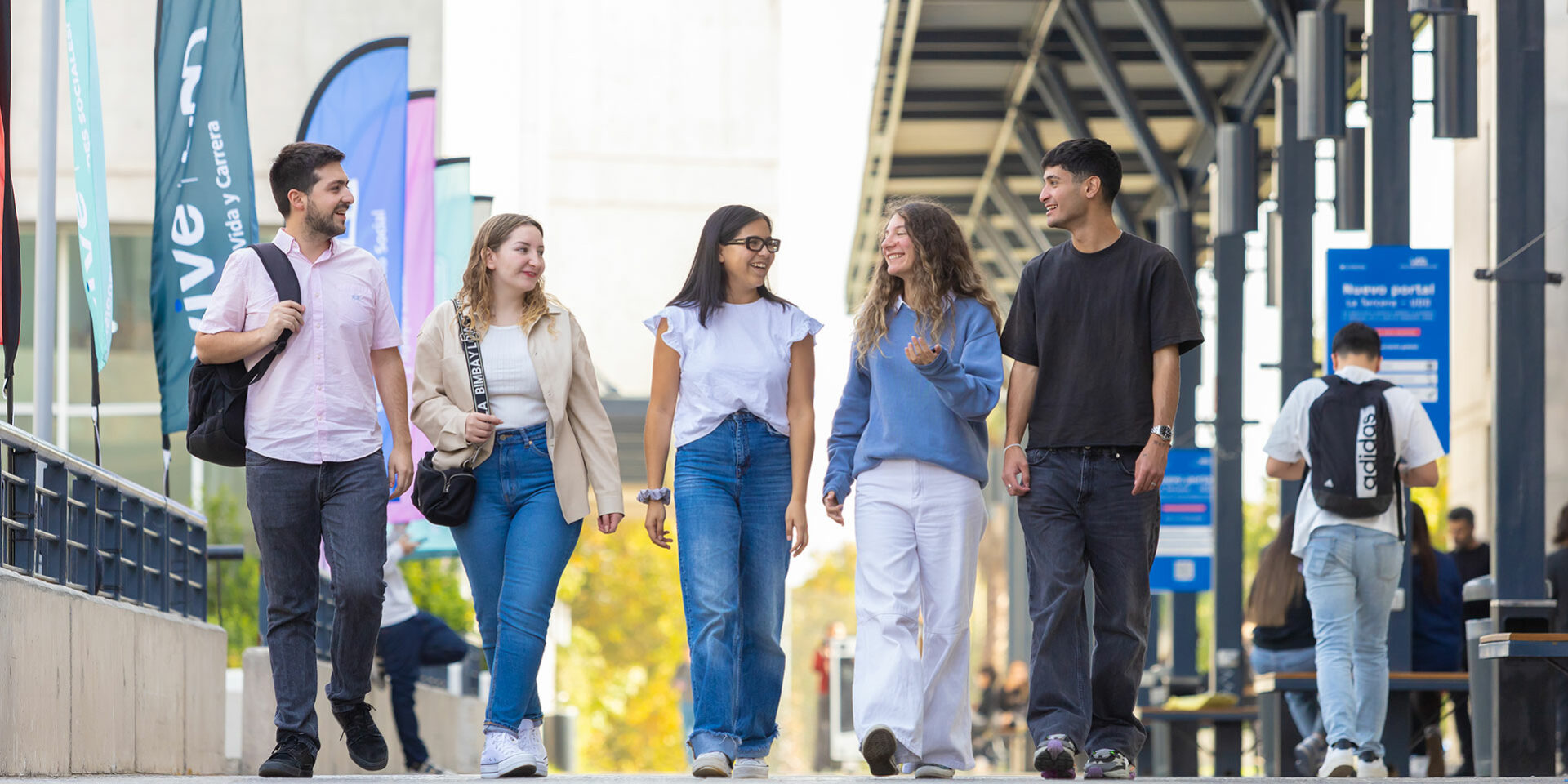Health, body, and sexuality in adolescents and young people
Por: Alexandra Obach, PhD
Profesora Investigador PROESSA, ICIM, Facultad de Medicina Clínica Alemana Universidad del Desarrollo
The Program of Social Studies in Health (PROESSA), of the Institute of Sciences and Innovation in Medicine (ICIM), of the School of Medicine at Universidad del Desarrollo, is committed to study health of adolescents and the youth population in society.
Why focus on this social group? There is international consensus regarding the vulnerability of young people, mainly due to the situation of social invisibility in which they find themselves, and the unfavorable living conditions in which many are raised. The Sustainable Development Goals (SDGs) states adolescent health as a priority group, mainly concerning sexual and reproductive health (SRH). Adolescence is considered the age group that goes between the ages of 10 and 19, while the youth are in the stage from 20 to 24 years old. In Chile, the adolescents constitute 13.6% of the population, while the youth, 7.9% (1). Both of these groups concentrate the segment of society with the highest percentage of people in poverty, being one of the most vul- nerable in the country (2). By extension, this issue is reflected in specific health results of Sexual and Reproductive Health, among them, an increase in sexually transmitted infections (STIs), and an increase in HIV/AIDS cases, mainly in the young population (3-7). Linked to the above, a decrease in the use of preventive methods in the last sexual encounter of adolescents and young people (8) has been demonstrated.
In this context, there have been several investigations developed by PROESSA. One of them is the FONIS project “Systematization of experiences in friendly spaces for the prevention of adolescent pregnancy from a rights and par- ticipation approach: ethnographic study for the generation of recommendations for the prevention of adolescent pregnancy in Chile”. This initiative focuses on developing strategies for the promotion of sexual and reproductive health, along with the prevention of adolescent pregnancy based on experi- ences developed in Friendly Spaces in primary care. It also systematizes the identification of adolescent health needs in five communes in the Western sector of the Metropolitan Region. During the execution of the study, it was possible to identify efficient practices around the analyzed aspects in each of the communes. Additionally, the results of the study identify four strategic axes in the subject addressed: (i) intersectionality as an in- terdisciplinary encounter; (ii) sex education; (iii) focus of masculinities in sexual and reproductive health; and (iv) sexual diversity.
In conjunction with the School of Education, the initiative Interfacultades-UDD (Inter-Fac- ulties-UDD) conducted the research project “Ethnographic study for the promotion of sexual/ reproductive health and prevention of adolescent pregnancy in Chile was carried out: Identifying challenges and proposing solutions”. This project articulates a new strategy for sexual and repro- ductive health care in adolescents through the systematization of an intersectoral program, im- plemented in schools in one commune in Santiago. The program seeks to break sectorial health care practices and proposes the possibility of serving young people in educational establishments. In this new approach, health teams are present and permanently available in the school, generating a bond of trust with adolescents, which is considered crucial to achieving successful sexual and repro- ductive health care. This breaks a series of barriers identified in the sexual and reproductive health care of adolescents and young people, including infra- structure, treatment, and confidentiality barriers, among others (9,10). Among the main challenges identified for the implementation of sex education programs, tensions between professors and health professionals stand out (given the different disciplinary approaches), the limited training for working together, and the lack of support from both health and education sectors to enhance intersectoral work.
It has been possible to continue developing this line of re- search with two new funds available. One, the FONIS project entitled “Barriers Associated with the Access and use of the Public Health System for the Prevention and Detection of HIV/AIDS in the Country’s Young Population”, includes the generation of three products: (i) Specific recommendations for the reduction of such barriers; (ii) eLearning training program; (iii) Design of an interactive visual prototype (interface) representative of a web app (web application) aimed at providing information on HIV/AIDS to young people (characteristics to be defined in participatory process with young people).
Second, is the Fondecyt Initiation project entitled “En- counters and Tensions in the Construction of Young Bodies and Sexualities: the representations of the young world and the health system in Chile today”. This project establishes five objectives: 1) to explore the meanings that young peo- ple between the ages of 18 and 24 in three regions of the country currently build about their bodies, as well as sexual and health care practices that they display from these mean- ings, from a gender and intercultural approach; 1) to study the therapeutic itineraries that young women carry out to address issues related to sexuality, which involves inquiring about the dynamics of sexual and reproductive health care practices that occur within Primary Care Centers for young users; 2) to examine the building process of bodies and youth sexualities by health care providers; 3) to identify the possible encounters or tensions that occur between body and sexuality representations that emanate from young women, and health teams; and 4) based on the information that emerges, to develop theoretical knowledge and policy recommendations for decision-making on issues of sexuality and of sexual and reproductive health of young people in Chile.
With the path taken, the lessons learned from the projects carried out, and the experience in transferring research to decision-makers, PROESSA seeks to continue generating knowledge in this field, as well as provide support in the for- mulation of public health policies for adolescents and youth.
